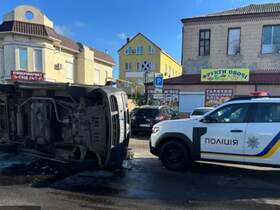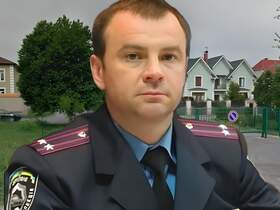In Spain, the notorious developer Voytsekhovskyi was detained and extradited to Ukraine

In Spain, the notorious developer Voytsekhovskyi was detained and extradited to Ukraine
Spanish police detained Ukrainian developer Anatoliy Voytsekhovskyi and delivered him to the border. What is he famous for?
On March 19, 2025, businessman Anatoliy Voytsekhovskyi was extradited to Ukraine from Spain. He had been evading investigation for five years and was on the international wanted list.
Voytsekhovskyi was behind sixty companies that built about forty residential complexes in Kyiv. Some were completed, others were not, but all were illegal.
Voytsekhovskyi built his business on the principle of a financial pyramid: funds from buyers of apartments in unfinished buildings were used to start work on new sites. As a result, the pyramid collapsed, leaving 10,000 investors without apartments.
How did Voytsekhovskyi manage to deceive Kyiv residents for years and hide abroad?
A Hollywood Script
On a chilly autumn morning in 2007, a man in his late 50s appeared in the square in front of the Kyiv railway station. He had been involved in the construction business in Zaporizhzhya, Sumy, and Dnipro all his life, but his entrepreneurial activities ended in bankruptcy.
Penniless, the man was determined to start his business from scratch. Kyiv on the eve of the 2008 financial crisis offered many opportunities for people with a business acumen.
Wandering the outskirts of the station, the man noticed an empty plot of land across from the TEC-3. He found out the phone number of the landowner, introduced himself as a developer, and promised to hand over a generous percentage of apartments for the right to build a residential building there.
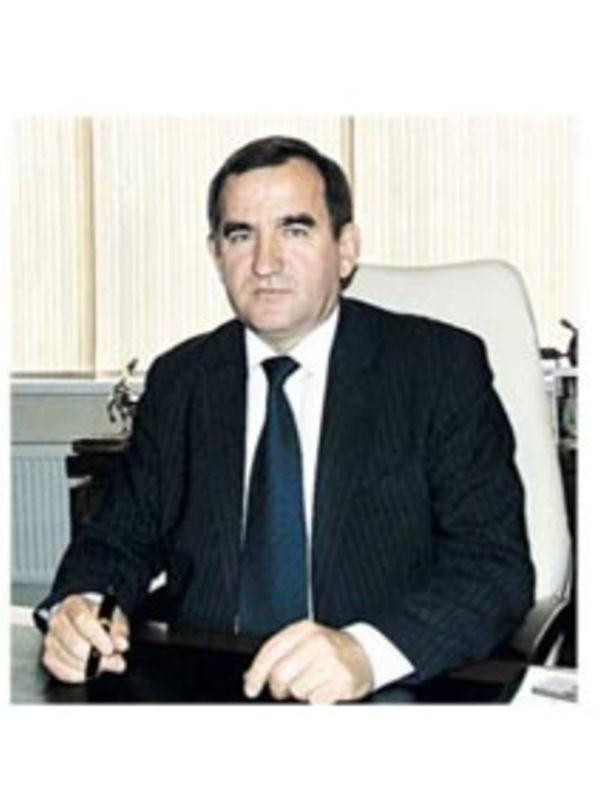
One of the few archival photos of Anatoliy Voytsekhovskyi / Photo from open sources
The quirky man from the station was Anatoliy Voytsekhovskyi. He borrowed a few thousand hryvnias, fenced the land with a green fence, bought vests and helmets, and hired a dozen hobos to walk around with brooms and create the appearance of work.
Voytsekhovskyi invited potential investors to see the investment object. One of them agreed to buy the first "future apartment" in the project, which eventually turned into the residential complex (RC) "Elegant" on Zhylyanska Street. Thus began the story of the largest financial pyramid in the history of Kyiv’s primary real estate market.
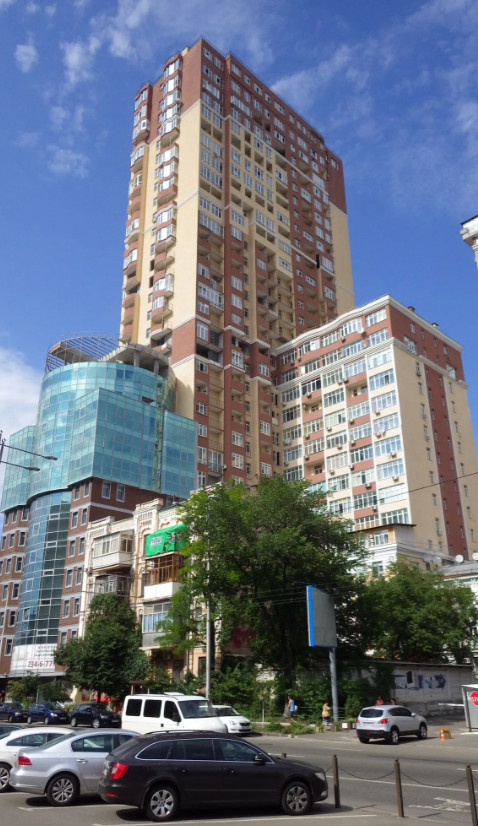
Residential complex “Elegant” on Zhilyanska Street / lun.ua
Secret of Success
In six years, the number of Voytsekhovskyi’s projects grew to 42. The buildings were built slowly, but queues of people eager to buy apartments lined up at the sales offices.
Voytsekhovskyi offered square meters 30-50% cheaper than other developers. For example, in 2015, an unbuilt apartment could be purchased for $10,000. Even this small amount came with several years of installment payments.
Investors’ funds were used for cross-financing: buyers of apartments in one RC financed construction work in another RC. Accordingly, Voytsekhovskyi did not worry about the cost and profit of each individual project.
Six dozen of Voysekhovskyi’s construction companies were united under the informal corporations "Ukogroup" and "City Group." The businessman registered the legal entities under nominal owners, even market vendors from Central Asia.
Almost every construction project in Kyiv can be considered conditionally legal: somewhere the plot lacks the necessary target designation, somewhere there are no technical conditions for connecting to utilities, and somewhere the height limit is exceeded. Voysekhovskyi gathered a bouquet of legal violations at each site.
The ambitious developer seized land plots, did not take permission to start construction works, and erected as many floors as he could. He "resolved" all issues with bribes to prosecutors, UP reported in 2015.
Moreover, sales departments of Voytsekhovskyi’s buildings offered the service of buying "conditional square meters" in any house of choice to be built in the future. These were double sales, like the first known case of deceived investors of "Elite-Center."
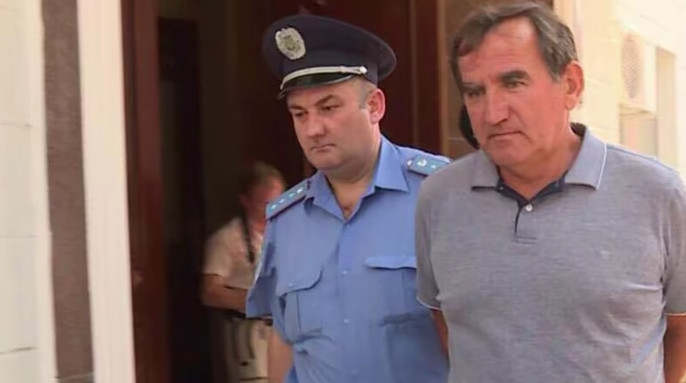
Anatoliy Voytsekhovskyi was detained in July 2016 / Photo from open sources
The location of a significant number of the unlucky developer’s houses raises questions not only in terms of legality but also in terms of common sense. For example, four RCs near Kharkiv highway are located above the Novodarnytsky sewer collector, which diverts 80% of the left bank’s sewage.
The RC "Panoramic," also known as RC "Olympic Village," is located in the sanitary protection zone of a research nuclear reactor. The radiation level of people under normal reactor operation can exceed the population dose quota. The RC "Sovski Ponds" is built under the slope of the hill, where the Baikove cemetery crematorium is located.
The Record Isn’t Eternal
Harsh price dumping by Voytsekhovskyi outraged developers who worked in a conditionally legal field according to the customary law that formed in Kyiv’s primary real estate market in the 2010s.
According to a developer who has been working since the 2000s, Voytsekhovskyi acted by openly fraudulent methods and was "untoachable" among decent businessmen.
"His activities cannot be called residential construction. He brazenly built ’something’ that is hard to call houses; it’s dangerous to live there. It’s not even about competition; he blatantly ignored everything and everyone, ruining the reputation of the entire new building market with his financial pyramid," one developer tells EP.
Developers pressured the city authorities, and they launched a campaign against Voytsekhovskyi’s fraudulent actions: they launched a problematic RC cadaster and blocked the delivery of building materials to new sites.
Simultaneously, dissatisfaction among investors in the most problematic RCs was growing. Initiative groups blocked streets, protested under the Kyiv City State Administration, and complained to the government. The Voytsekhovskyi case was handled by the Association of Assistance to Injured Investors, led by the future Prime Minister Oleksiy Honcharuk.
The police initiated proceedings against Voytsekhovskyi in November 2012. The case concerned unauthorized construction. As investigators later found out, the total amount of funds withdrawn to Voytsekhovskyi’s Cypriot offshore companies amounted to $150 million.
In 2015, construction works on the sites stopped. Law enforcement officers detained Voytsekhovskyi on July 15, 2016. He was taken into custody but was immediately released on a bail of 14 million UAH.
Over the next three years, he lived and "conducted business negotiations" in the "Naturalist" estate near Kyiv, as reported by Liga.net. In 2020, he declared the estate bankrupt and left the territory of Ukraine. Animals in the estate’s zoo died from hunger and disease.
At that time, Voytsekhovskyi was declared internationally wanted. Two participants of the "criminal group" of the developer - managers of the corporation "Ukogroup" were convicted: one to five years on probation, the other to 1.5 years of imprisonment.
The Fate of the Buildings
It is impossible to legally commission Voytsekhovskyi’s buildings since they were constructed under projects that did not pass expert examination and with violations of building norms.
Investors were able to move into sections at high completion stages (albeit illegally), but they face numerous problems. At least three RCs are heated by wood, in some the elevators do not work, water comes from a well, and the sewage is connected to a stormwater drain.
Residents of completed RCs pay for electricity and water supply at a commercial rate. If the house has electric heating, electricity bills can reach 20,000 UAH per month.
In 2019, the court transferred 17 Ukogroup’s objects to the management of the Asset Recovery and Management Agency. The former acting head of ARMA Vitaliy Sihidin, in an interview with Mind, admitted that he did not understand what to do with Voytsekhovskyi’s legacy.
"You can’t do anything here. We were given illegal construction for management: there is no land, many apartments have been sold multiple times. Who will take this for management? Voytsekhovskyi’s assets are property that is not even in civil circulation," said Sihidin.
In 2020, the Ministry of Internal Affairs, together with the city authorities, planned to develop a simplified system for commissioning abandoned buildings. To do this, an interdepartmental working group was created under the government, which never started working.
Author: Oleksandr Kolesnichenko
Elegant
Topics: Vitaliy SihidinRC Sovski StavkyRC ElegantUkogroupCity GroupDetentionDeveloperExtraditionAnatoliy Voytsekhovskyi

Comments:
comments powered by DisqusЗагрузка...
Our polls
Show Poll results
Show all polls on the website








